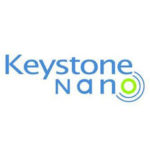 Keystone Nano said today that its ceramide nanoliposome won orphan drug status from the FDA for the treatment of liver cancer. The designation provides the company with a window of market exclusivity after product approval.
Keystone Nano said today that its ceramide nanoliposome won orphan drug status from the FDA for the treatment of liver cancer. The designation provides the company with a window of market exclusivity after product approval.
The State College, Penn.-based company touted its nanoliposome delivery system as being able to load both water-loving and water-hating compounds and delivery them intracellularly. The carriers range from 60-80 nanometers and are stable in circulating blood.
A number of in vitro and in vivo tests have proven that ceramide, a lipid, can effectively target and kill cancer cells while ignoring healthy cells, according to Keystone Nano. While the company has undergone preclinical testing of the lipid-based nanocarrier, it is planning clinical testing in the near future.
Liver cancer kills approximately 25,000 people in the United States annually, Keystone Nano reported, and there is no effective therapy on the market.
Besides the ceramide nanoliposome, the company is also working on a calcium phosphate nanoparticle, NanoJackets, that may target specific cell types. The company has 14 issued patents and 8 pending applications.
“We are pleased to be granted orphan drug status as this helps Keystone Nano accelerate the development of ceramide NanoLiposome (KN-001) for the patients battling Liver Cancer,” CEO Jeff Davidson said in prepared remarks.
